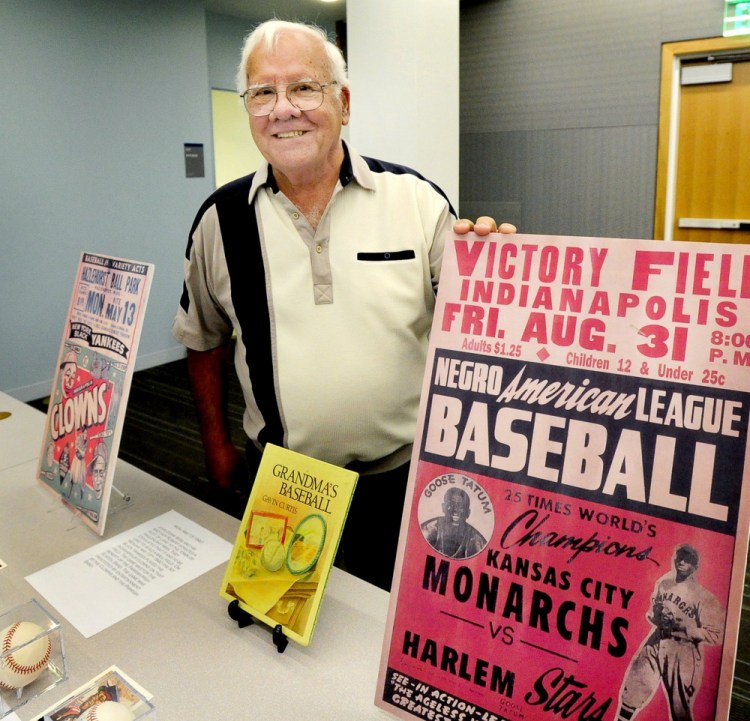When Joe Caliro was preparing for one of his lectures on the Negro Leagues, he contacted the folks at the McArthur Library in Biddeford to verify some information he had gathered.
It seems that the Biddeford-Saco area was a prime spot for some of the barnstorming baseball teams made up of players from the Negro Leagues. And with help from Renee DesRoberts, the archivist at the library, he was able to dig up newspaper accounts and box scores of those games.
On Tuesday, Caliro will bring the accounts of those games, and his vast collection of Negro Leagues memorabilia, to McArthur Library for a showing and a lecture. The event will be held in the library’s Community Room on the first floor. The exhibit will open at 5:30 p.m. with Caliro’s lecture at 6:30 p.m.
A drawing for four Portland Sea Dogs tickets will be held afterward.
“It’s an awesome little collection,” said DesRoberts. “It’s rich with history. I can’t wait to see it all.”
Caliro, an 81-year-old Portsmouth, New Hampshire, resident, has presented his lecture at libraries throughout New England.
He plans on localizing his talk for the Biddeford audience, focusing more on the barnstorming teams that played in Sanford, Kennebunk, Biddeford and Saco.
He is particularly fond of telling the story of a game where Bill “Cannonball” Jackman pitched in Biddeford. According to Caliro, a fan kept yelling racist comments at Jackman. After a while, other fans set the man’s car on fire to get him to stop.
Caliro’s collection contains more than 400 items of memorabilia, including game programs, autographed baseballs, posters, pins, jerseys, cards, poker chips, matchbook covers and personal letters.
The newest items include a letter from Rachel Robinson – the wife of baseball pioneer Jackie Robinson – and several wooden baseball cards of Negro Leagues players.
“They’re actually called wooden nickels,” said Caliero. “I found them on eBay. They’re carved on balsam wood, about 3 inches by 1 inch, about Negro Leagues players. They have his name and a little information, like regular baseball cards.”
Caliro’s interest in the Negro Leagues began while he was in the military, stationed in Mississippi in the late 1950s. He was asked by one of his officers to put together a class on race relations in the South at that time, so the enlisted men would know what to expect. To prepare, Caliro studied Robinson, and how he handled the discriminatory and racial situations he was exposed to when he became the first black player in the major leagues in 1947.
He researched the Negro Leagues and began collecting memorabilia, most of which stayed in boxes in his den for decades.
“It’s a part of American history that many people don’t know about, even baseball fans.”
Send questions/comments to the editors.




Success. Please wait for the page to reload. If the page does not reload within 5 seconds, please refresh the page.
Enter your email and password to access comments.
Hi, to comment on stories you must . This profile is in addition to your subscription and website login.
Already have a commenting profile? .
Invalid username/password.
Please check your email to confirm and complete your registration.
Only subscribers are eligible to post comments. Please subscribe or login first for digital access. Here’s why.
Use the form below to reset your password. When you've submitted your account email, we will send an email with a reset code.